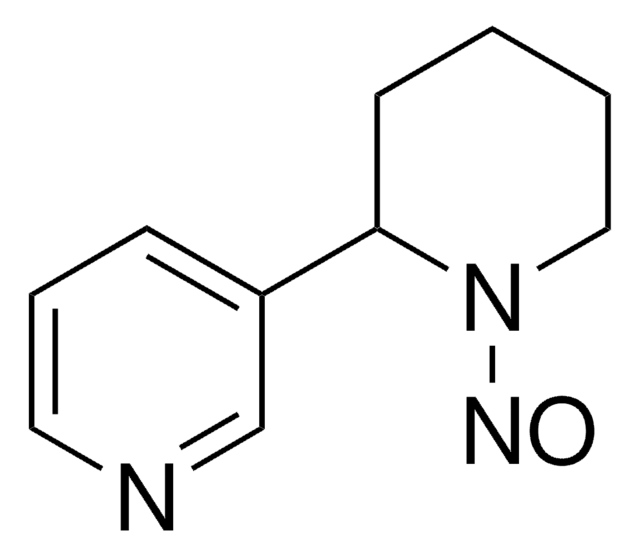93595
Azul de tripano solution
0.4%, for microscopy
About This Item
Productos recomendados
grado
for microscopy
Nivel de calidad
formulario
liquid
caducidad
limited shelf life, expiry date on the label
concentración
0.4%
color
blue to very dark blue
densidad
1.007 g/mL at 20 °C
εmax
1.4 at 603 nm in methanol
aplicaciones
diagnostic assay manufacturing
hematology
histology
temp. de almacenamiento
room temp
cadena SMILES
[Na+].[Na+].[Na+].[Na+].Cc1cc(ccc1N=Nc2c(O)c3c(N)cc(cc3cc2S([O-])(=O)=O)S([O-])(=O)=O)-c4ccc(N=Nc5c(O)c6c(N)cc(cc6cc5S([O-])(=O)=O)S([O-])(=O)=O)c(C)c4
InChI
1S/C34H28N6O14S4.4Na/c1-15-7-17(3-5-25(15)37-39-31-27(57(49,50)51)11-19-9-21(55(43,44)45)13-23(35)29(19)33(31)41)18-4-6-26(16(2)8-18)38-40-32-28(58(52,53)54)12-20-10-22(56(46,47)48)14-24(36)30(20)34(32)42;;;;/h3-14,41-42H,35-36H2,1-2H3,(H,43,44,45)(H,46,47,48)(H,49,50,51)(H,52,53,54);;;;/q;4*+1/p-4
Clave InChI
GLNADSQYFUSGOU-UHFFFAOYSA-J
¿Está buscando productos similares? Visita Guía de comparación de productos
Categorías relacionadas
Descripción general
Aplicación
- it is a routinely used for viability testing for diverse cell types including frozen sperm and aortic muscle cells exposed to antifungal agents.
- employed as a collagen stain in a Van Gieson procedure
- To stain amyloid, Trypan blue is considered as a blue alternative to Congo red in Puchtler-Bennhold stains.
- used as a fluorescent tracer of cell populations in embryology
- used as a tumor promoter modulating permeability of lysosomal membranes
Acciones bioquímicas o fisiológicas
Forma física
Palabra de señalización
Danger
Frases de peligro
Consejos de prudencia
Clasificaciones de peligro
Carc. 1B
Código de clase de almacenamiento
6.1D - Non-combustible acute toxic Cat.3 / toxic hazardous materials or hazardous materials causing chronic effects
Clase de riesgo para el agua (WGK)
WGK 3
Punto de inflamabilidad (°F)
Not applicable
Punto de inflamabilidad (°C)
Not applicable
Equipo de protección personal
Eyeshields, Gloves, type ABEK (EN14387) respirator filter
Choose from one of the most recent versions:
¿Ya tiene este producto?
Encuentre la documentación para los productos que ha comprado recientemente en la Biblioteca de documentos.
Los clientes también vieron
Protocolos
Learn how to perform cell migration assays in vitro using Millicell® hanging cell culture inserts and the suspension T-cell lines Jurkat and primary CD4+ cells. Monitor migration by flow cytometry and EZ-MTT assays.
Nuestro equipo de científicos tiene experiencia en todas las áreas de investigación: Ciencias de la vida, Ciencia de los materiales, Síntesis química, Cromatografía, Analítica y muchas otras.
Póngase en contacto con el Servicio técnico





![Benzo[a]pyrene ≥96% (HPLC)](/deepweb/assets/sigmaaldrich/product/structures/253/820/be96d879-1811-46c0-8f11-612019691c2d/640/be96d879-1811-46c0-8f11-612019691c2d.png)





